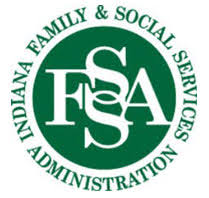
INDIANAPOLIS —The Indiana Family and Social Services Administration (FSSA) announced today that Indiana PathWays for Aging launched for more than 123,000 eligible Hoosiers aged 60 and over.
“This is an exciting day for Indiana as we go live with this transformative program,” Indiana Medicaid Director Cora Steinmetz said. “We thank our partners across the state who have been instrumental in helping us design a program that will make a difference for this population and the state.”
Pathways for Aging is a Medicaid-managed care program designed to improve the health and well-being of the Hoosiers it serves, provide choice for members who want to age in their homes or communities, and better manage the rising costs of providing Medicaid coverage to the aging population. This program, in addition to the Healthy Indiana Plan, Hoosier Healthwise, and Hoosier Care Connect, becomes the state’s fourth managed care program.

“Before PathWays, the aging individuals on Medicaid had to navigate a complicated healthcare and supports system on their own,” FSSA Secretary Dan Rusyniak, M.D., said. “Now, individuals need only one point of contact for assistance, making it easier for more Hoosiers to stay in their homes, surrounded by family and friends.”
On PathWays, individuals contact a care coordinator who can help them access services or find other resources to meet their needs.
Some individuals on the PathWays program will qualify for additional services based on their needs and will be eligible for the PathWays home and community-based services (HCBS) waiver.
July 1 also marks the end of the Aged and Disabled Waiver. Two new waivers, the PathWays Waiver for individuals aged 60 and older and the Health and Wellness Waiver for individuals 59 and younger, will provide home and community-based services to eligible Hoosiers who need nursing facility-level care.
Per the federal approvals, both waivers have a designated number of slots available. A slot can only be used by one person during the July 1, 2024 through June 30, 2025, waiver year and cannot be re-used by a different person if a member no longer needs services, for example, if the individual moved out of state.
- PathWays for Aging Waiver: 39,842 slots, of which 29,268 are filled by Hoosiers already receiving services. 10,574 slots will remain for newly eligible individuals.
- Health and Wellness Waiver: 16,127 slots, of which 13,190 are filled by Hoosiers already receiving services. 2,937 slots will remain for newly eligible individuals.
In April, FSSA established a waiting list for the former Aged and Disabled Waiver. Beginning this month, the agency will begin inviting eligible individuals on the waiting list to continue accessing either the PathWays Waiver or the Health and Wellness Waiver.
Individuals receiving waiver services through the former Aged and Disabled Waiver, which has now transitioned to the Health and Wellness Waiver or PathWays Waiver, do not have to complete this process.
No waitlist will exist for the overall PathWays program; only individuals eligible for waiver services under PathWays may be placed on a waitlist.
Currently, 9,015 people are on the waiting list for the PathWays Waiver, and 3,762 are on the Health and Wellness Waiver waiting list.
FSSA will invite a group of individuals to continue receiving services each month as long as capacity remains. Based on the number of slots, the number of people on the waiting list, and the steps that must be taken, FSSA plans to invite individuals as follows:
- 125 individuals per month to Health and Wellness HCBS Waiver
- 800 individuals per month to PathWays HCBS Waiver
These estimates are based on the steps that must be taken following the invitation to allow eligible members to access services as quickly as possible. For example, face-to-face level-of-care assessments must be completed, and functional and Medicaid eligibility must be determined. Individuals invited to proceed will receive a letter with further details.
Transition Structured Family Caregiving or new Attendant Care caregiver
As announced early this year, legally responsible individuals are no longer permitted to provide Attendant Care as of today. Two options were offered: Structured Family Caregiving or Attendant Care from a caregiver who is not a legally responsible individual.
More than 1,700 members, or the vast majority affected, had completed a newly approved service plan and can begin their new services. After July 1, all Health and Wellness waiver members 17 and younger who select Structured Family Caregiving for the first time will be assessed by care managers to determine the appropriate service tier. Families who transitioned to Structured Family Caregiving before the July 1 start were placed in a tier based on the Attendant Care hours they already utilized.
In mid-2025, a new Structured Family Caregiving Level of Service Assessment will be in place.



